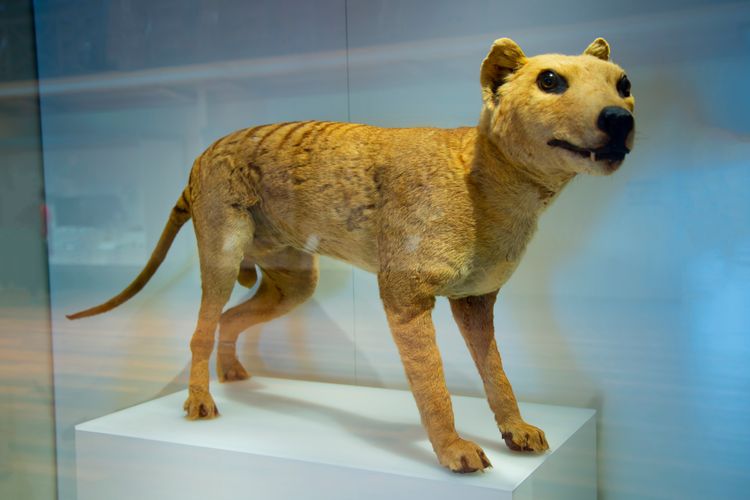'De-Extinction' Company Claims to Have Extinct Tasmanian Tiger's ...

A company called Colossal Biosciences has announced that it is one big step closer to achieving its goal of bringing an extinct marsupial back from extinction. Not save it from extinction. It’s already extinct. They want to bring it back from the dead, Jurassic Park-style. Sort of. That goal is a lot closer since it claims to have almost completely mapped the Tasmanian Tiger’s genome with 99.9 percent accuracy. Now it’s up to the rest of the scientific community to peer review its work.
The last known Tasmanian Tiger, also known as the thylacine, died in captivity in 1936. It has since sort of fallen into myth, with some people claiming to have seen some roaming around its native home of the Australian mainland or on the islands of Tasmania and New Guinea. Those people are incorrect because it is very dead. But Colossal says they are on the doorstep of being able to bring it back to life. Again, sort of.
Videos by VICE
The Tasmanian Tiger’s genome was first sequenced with some preserved tissue back in 2017. Gene sequencing technology has improved since then, and higher-quality tissue samples have been gathered, including a well-preserved 120-year-old Tasmanian Tiger tooth. The extinct species’ genome isn’t quite as well-mapped as the human genome is, but they’ve got more than enough to start some experiments.
They’re not immediately leaping into bringing the Tasmanian Tiger back like John Hammond did with velociraptors, though. Colossal’s current goal is to genetically modify living marsupials like the fat-tailed dunnart, which kind of looks like a mouse with dark bugged-out eyes, and give it some of the Tasmanian Tiger’s traits.
They say they’ve already done 300 genetic edits on dunnart cells and plan on tossing in tens of thousands of Tasmanian Tiger DNA base pairs, I guess just to see what sticks. Who knows what will come of their genetic tampering in the years to come or whether it will advance enough to fully bring back extinct species, but let’s just hope they’ve seen Jurassic Park enough times to have absorbed Ian Malcolm’s thesis statement: “Your scientists were so preoccupied with whether or not they could, they didn’t stop to think if they should.”









































